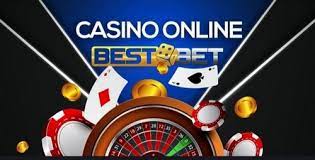The Joker card, a staple in many card games, is renowned for its unique attributes and versatility. Unlike other cards in a standard deck, which typically hold specific values and suits, the Joker embodies the spirit of unpredictability and jokercard. This article delves into the history, significance, and diverse uses of the Joker card in various games and cultures.
Historical Background
The origins of the Joker card can be traced back to the mid-19th century, primarily in the United States. It was initially introduced as a wild card in the game of Euchre, a trick-taking card game popular among American card players. As the Joker gained popularity, it found its way into other games, becoming a standard component in modern decks.
The Joker’s design has evolved over the years, with many decks featuring elaborate illustrations that often depict a whimsical clown or harlequin. This imagery reflects the Joker’s role as a trickster, someone who disrupts the norm and introduces an element of surprise.
The Joker in Card Games
The Joker card is commonly used in a variety of card games, each utilizing its unique properties. Here are a few notable examples:
- Euchre: In this game, the Joker acts as the highest trump card, capable of beating all other cards, thereby emphasizing its power and unpredictability.
- Poker: While traditional poker does not include Jokers, many casual variants allow the Joker to serve as a wild card, substituting for any other card to complete a hand. This feature heightens the stakes and adds excitement to the game.
- Rummy: In Rummy and its variations, Jokers can be used as wild cards, allowing players to create sets and runs more easily, thus increasing the game’s dynamic nature.
- Uno: In this popular card game, the Joker takes on a different role, often acting as a powerful card that can change the game’s flow, allowing players to swap hands or change the color in play.
Symbolism and Cultural Significance
Beyond its role in games, the Joker card carries deeper symbolic meaning in various cultures. It often represents chaos, anarchy, and the unpredictable nature of life. In tarot, for example, the Joker corresponds to the Fool card, signifying new beginnings, innocence, and spontaneity. This connection highlights the Joker’s association with taking risks and embracing uncertainty.
In literature and popular culture, the Joker is frequently portrayed as a trickster figure, challenging societal norms and expectations. One of the most famous representations is in the comic book world, particularly in the character of the Joker from Batman lore, who embodies chaos and challenges the order represented by Batman. This archetype illustrates the duality of the Joker: both a source of entertainment and a reminder of life’s unpredictability.
Conclusion
The Joker card is more than just a playful addition to a deck of cards; it symbolizes versatility, chaos, and the unknown. Its ability to adapt to different games and its rich historical and cultural significance make it a fascinating subject. Whether you view it as a tool for winning games or a representation of life’s unpredictable nature, the Joker card holds a unique place in the world of playing cards and beyond. Its enduring popularity and multifaceted role ensure that it will continue to captivate players and audiences alike for generations to come.


